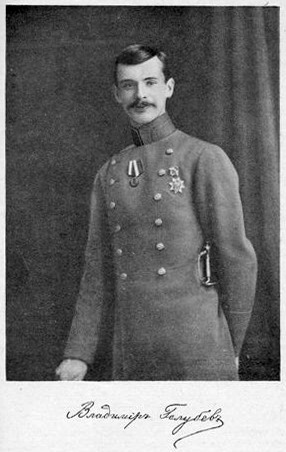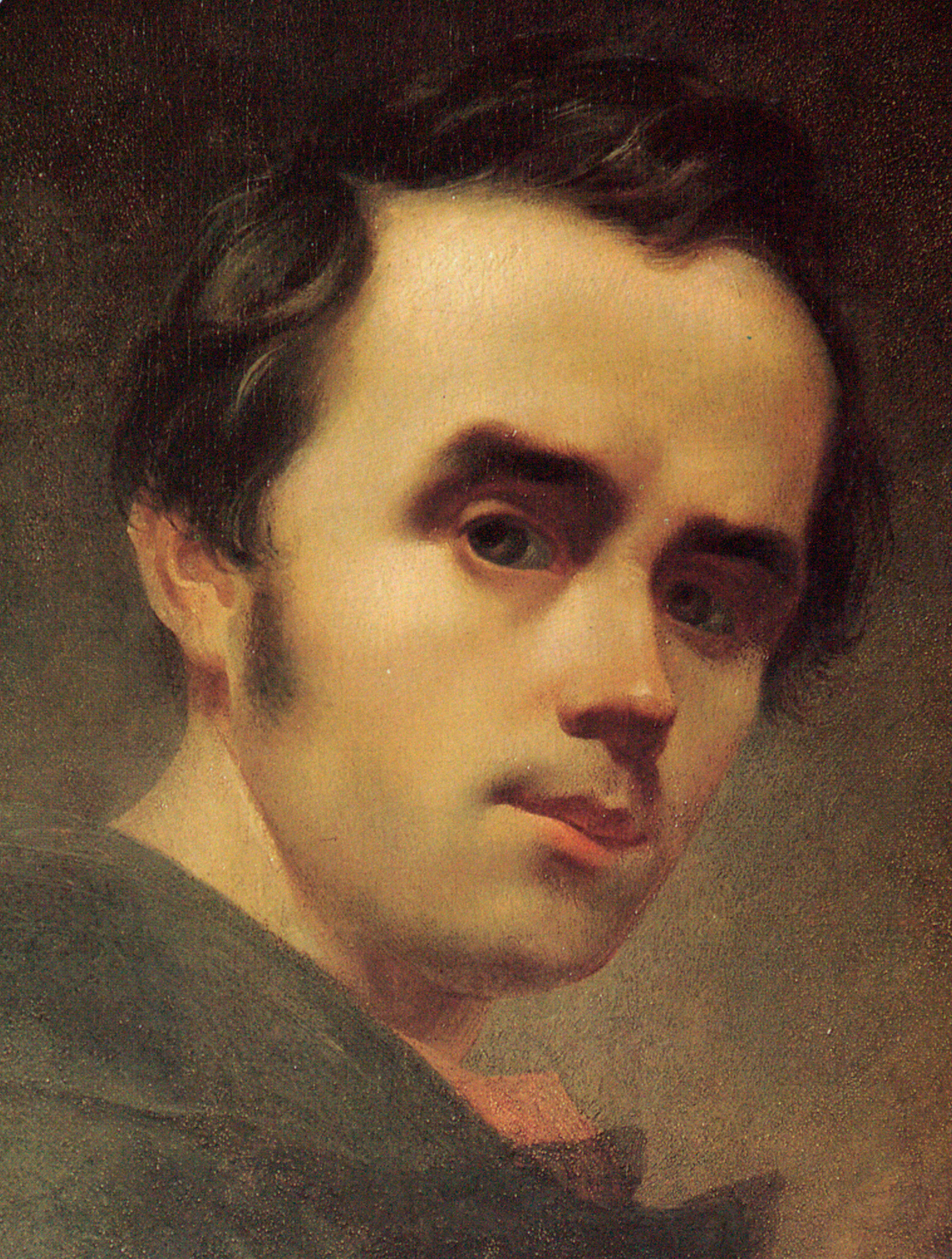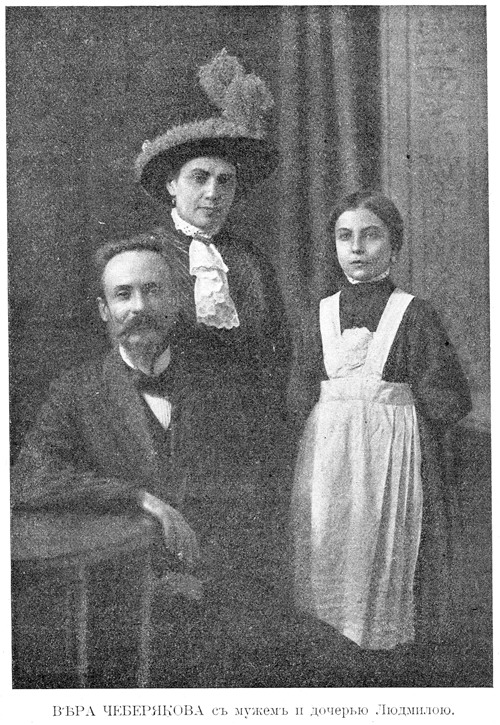|
Beilis Trial
Menahem Mendel Beilis (1874 – July 7, 1934; sometimes spelled Beiliss) was a Russian Jew accused of ritual murder in Kiev in a notorious 1913 trial, known as the "Beilis trial" or the "Beilis affair". Although Beilis was eventually acquitted after a lengthy process, the legal process sparked international criticism of antisemitism in the Russian Empire. Beilis's story was fictionalized in Bernard Malamud's 1966 novel '' The Fixer'', which won the Pulitzer Prize for Fiction and the U.S. National Book Award for Fiction. Maurice Samuel's book ''Blood Accusation: the Strange Case of the Beilis Trial'', a non-fiction account, was published by Alfred A. Knopf the same year. Biography Menahem Mendel Beilis was born into a Hasidic family. In 1911, he was an ex-soldier and the father of five children. He was employed as a superintendent at the Zaitsev brick factory in Kiev. Murder of Andriy Yushchinskyi On March 12, 1911, a 13-year-old boy named Andriy Yushchinskyi disappeared on his ... [...More Info...] [...Related Items...] OR: [Wikipedia] [Google] [Baidu] |
Kiev
Kyiv, also Kiev, is the capital and most populous List of cities in Ukraine, city of Ukraine. Located in the north-central part of the country, it straddles both sides of the Dnieper, Dnieper River. As of 1 January 2022, its population was 2,952,301, making Kyiv the List of European cities by population within city limits, seventh-most populous city in Europe. Kyiv is an important industrial, scientific, educational, and cultural center. It is home to many High tech, high-tech industries, higher education institutions, and historical landmarks. The city has an extensive system of Transport in Kyiv, public transport and infrastructure, including the Kyiv Metro. The city's name is said to derive from the name of Kyi, one of its four legendary founders. During History of Kyiv, its history, Kyiv, one of the oldest cities in Eastern Europe, passed through several stages of prominence and obscurity. The city probably existed as a commercial center as early as the 5th century. A Slav ... [...More Info...] [...Related Items...] OR: [Wikipedia] [Google] [Baidu] |
Newspapers
A newspaper is a Periodical literature, periodical publication containing written News, information about current events and is often typed in black ink with a white or gray background. Newspapers can cover a wide variety of fields such as politics, business, sports, art, and science. They often include materials such as opinion columns, weather forecasts, reviews of local services, Obituary, obituaries, birth notices, crosswords, editorial cartoons, comic strips, and advice columns. Most newspapers are businesses, and they pay their expenses with a mixture of Subscription business model, subscription revenue, Newsagent's shop, newsstand sales, and advertising revenue. The journalism organizations that publish newspapers are themselves often Metonymy, metonymically called newspapers. Newspapers have traditionally been published Printing, in print (usually on cheap, low-grade paper called newsprint). However, today most newspapers are also Electronic publishing, published on webs ... [...More Info...] [...Related Items...] OR: [Wikipedia] [Google] [Baidu] |
Kiev State University
The Taras Shevchenko National University of Kyiv (; also known as Kyiv University, Shevchenko University, or KNU) is a public university in Kyiv, Ukraine. The university is the third-oldest university in Ukraine after the University of Lviv and the University of Kharkiv. Its structure consists of 15 faculties and five institutes. The university was founded in 1834 by Nicholas I of Russia as the Saint Vladimir Imperial University of Kiev; it has since changed its name several times. During the Soviet Union era, Kiev State University was one of the top three universities in the USSR, along with Moscow State University and Leningrad State University. It is ranked as the best university in Ukraine in many rankings. Its alumni include Mykola Lysenko, Nikolay Bunge, Mykhailo Drahomanov, Mykhailo Hrushevskyi, Nikolai Berdyaev, Mikhail Bulgakov, Ivan Schmalhausen, Theodosius Dobzhansky, Viacheslav Chornovil, and Leonid Kravchuk. The university is named after Taras Shevchenko, who was ba ... [...More Info...] [...Related Items...] OR: [Wikipedia] [Google] [Baidu] |
10Красовский
1 (one, unit, unity) is a number, numeral, and glyph. It is the first and smallest positive integer of the infinite sequence of natural numbers. This fundamental property has led to its unique uses in other fields, ranging from science to sports, where it commonly denotes the first, leading, or top thing in a group. 1 is the unit of counting or measurement, a determiner for singular nouns, and a gender-neutral pronoun. Historically, the representation of 1 evolved from ancient Sumerian and Babylonian symbols to the modern Arabic numeral. In mathematics, 1 is the multiplicative identity, meaning that any number multiplied by 1 equals the same number. 1 is by convention not considered a prime number. In digital technology, 1 represents the "on" state in binary code, the foundation of computing. Philosophically, 1 symbolizes the ultimate reality or source of existence in various traditions. In mathematics The number 1 is the first natural number after 0. Each natural number, ... [...More Info...] [...Related Items...] OR: [Wikipedia] [Google] [Baidu] |
Beilis Affair Vera Chenberyak
Menahem Mendel Beilis (1874 – July 7, 1934; sometimes spelled Beiliss) was a Russian Jews, Russian Jew accused of Blood libel, ritual murder in Kiev in a notorious 1913 trial, known as the "Beilis trial" or the "Beilis affair". Although Beilis was eventually acquitted after a lengthy process, the legal process sparked international criticism of antisemitism in the Russian Empire. Beilis's story was fictionalized in Bernard Malamud's 1966 novel ''The Fixer (Malamud novel), The Fixer'', which won the Pulitzer Prize for Fiction and the U.S. National Book Award for Fiction. Maurice Samuel's book ''Blood Accusation: the Strange Case of the Beilis Trial'', a non-fiction account, was published by Alfred A. Knopf the same year. Biography Menahem Mendel Beilis was born into a Hasidic family. In 1911, he was an ex-soldier and the father of five children. He was employed as a superintendent at the Zaitsev brick factory in Kiev. Murder of Andriy Yushchinskyi On March 12, 1911, a 13-year- ... [...More Info...] [...Related Items...] OR: [Wikipedia] [Google] [Baidu] |
Student Golubev
A student is a person enrolled in a school or other educational institution, or more generally, a person who takes a special interest in a subject. In the United Kingdom and most commonwealth countries, a "student" attends a secondary school or higher (e.g., college or university); those in primary or elementary schools are "pupils". Africa Nigeria In Nigeria, education is classified into four systems known as a 6-3-3-4 system of education. It implies six years in primary school, three years in junior secondary, three years in senior secondary and four years in the university. However, the number of years to be spent in university is mostly determined by the course of study. Some courses have longer study lengths than others. Those in primary school are often referred to as pupils. Those in university, as well as those in secondary school, are referred to as students. The Nigerian system of education also has other recognized categories like the polytechnics and colleges of ... [...More Info...] [...Related Items...] OR: [Wikipedia] [Google] [Baidu] |
Romanov Dynasty
The House of Romanov (also transliterated as Romanoff; , ) was the reigning imperial house of Russia from 1613 to 1917. They achieved prominence after Anastasia Romanovna married Ivan the Terrible, the first crowned tsar of all Russia. Nicholas II, the last Emperor of Russia, and his immediate family were executed in 1918, but there are still living descendants of other members of the imperial house. The house consisted of boyars in Russia (the highest rank in the Russian nobility at the time) under the reigning Rurik dynasty, which became extinct upon the death of Feodor I in 1598. The Time of Troubles, caused by the resulting succession crisis, saw several pretenders and imposters lay claim to the Russian throne during the Polish-Lithuanian occupation. On 21 February 1613, the Zemsky Sobor elected Michael Romanov as tsar, establishing the Romanovs as Russia's second reigning dynasty. Michael's grandson, Peter I, who took the title of emperor and proclaimed th ... [...More Info...] [...Related Items...] OR: [Wikipedia] [Google] [Baidu] |
Katorga
Katorga (, ; from medieval and modern ; and Ottoman Turkish: , ) was a system of penal labor in the Russian Empire and the Soviet Union (see Katorga labor in the Soviet Union). Prisoners were sent to remote penal colonies in vast uninhabited areas of Siberia and the Russian Far East where voluntary settlers and workers were never available in sufficient numbers. The prisoners had to perform forced labor under harsh conditions. Etymology The term "katorga" (Russian: ) originated from the Ottoman Turkish word "kadırga," which means "galley" (a type of ship). This transition reflects the historical practice where, among others, Ukrainian and Russian slaves, were subjected to severe penal labor on galleys or in similar harsh conditions. In the Crimean Khanate and the Ottoman Empire, the practice of forcing slaves to work on galleys was common, and the suffering endured by these individuals was often depicted in Ukrainian dumas (songs). In the Russian language, "katorga" evolve ... [...More Info...] [...Related Items...] OR: [Wikipedia] [Google] [Baidu] |
Pavel Milyukov
Pavel Nikolayevich Milyukov ( rus, Па́вел Никола́евич Милюко́в, p=mʲɪlʲʊˈkof; 31 March 1943) was a Russian historian and liberal politician. Milyukov was the founder, leader, and the most prominent member of the Constitutional Democratic party (known as the ''Kadets''). He changed his view on the monarchy between 1905 and 1917. In the Russian Provisional Government, he served as Foreign Minister, working to prevent Russia's exit from the First World War. Pre-revolutionary career Pavel was born in Moscow in the upper-class family of Nikolai Pavlovich Milyukov, a professor in architecture who taught at the Moscow School of Painting, Sculpture and Architecture. Milyukov was a member of the House of Milukoff. Milyukov studied history and philology at the Moscow University, where he was influenced by Herbert Spencer, Auguste Comte, and Karl Marx. His teachers were Vasily Klyuchevsky and Paul Vinogradoff. In summer 1877 he briefly took part in R ... [...More Info...] [...Related Items...] OR: [Wikipedia] [Google] [Baidu] |
Mykhailo Hrushevskyi
Mykhailo Serhiiovych Hrushevsky (; – 24 November 1934) was a Ukrainian academician, politician, historian and statesman who was one of the most important figures of the Ukrainian national revival of the early 20th century. Hrushevsky is often considered the country's greatest modern historian, the foremost organiser of scholarship, the leader of the pre-revolution Ukrainian national movement, the head of the Central Rada (Ukraine's 1917–1918 revolutionary parliament), and a leading cultural figure in the Ukrainian SSR during the 1920s. Biography Early life Hrushevsky was born on 29 September 1866 to a Ukrainian noble family in Kholm (Chełm), in Congress Poland, an autonomous polity in the Russian Empire. Hrushevsky grew up in Tiflis, where he attended a local school. His spiritual native land became Podillia, in the area of the village of Sestrynivka, Podillia Governorate. There, his mother, Glafira Zakharivna Okopova, was born into a family of Orthodox priests. G ... [...More Info...] [...Related Items...] OR: [Wikipedia] [Google] [Baidu] |
Vladimir Vernadsky
Vladimir Ivanovich Vernadsky (), also spelt Volodymyr Ivanovych Vernadsky (; – 6 January 1945), was a Russian, Ukrainian, and Soviet mineralogist and geochemist who is considered one of the founders of geochemistry, biogeochemistry, and radiogeology. He was one of the founders and the first president of the Ukrainian Academy of Sciences (now National Academy of Sciences of Ukraine). Vladimir Vernadsky is most noted for his 1926 book ''The Biosphere'' in which he inadvertently worked to popularize Eduard Suess's 1875 term biosphere, by hypothesizing that life is the geological force that shapes the earth. In 1943 he was awarded the USSR State Prize, Stalin Prize. Vernadsky's portrait is depicted on the Ukrainian ₴1,000 hryvnia banknote. Early life Vernadsky was born in Saint Petersburg, Russian Empire, on in the family of the native Kyiv residents Russian Imperial economist Ivan Vernadsky and Anna Konstantinovich, who came from an old Russia noble family. According to famil ... [...More Info...] [...Related Items...] OR: [Wikipedia] [Google] [Baidu] |
Alexander Kuprin
Aleksandr Ivanovich Kuprin (; – 25 August 1938) was a Russian writer best known for his novels ''The Duel'' (1905)Kuprin scholar Nicholas Luker, in his biography ''Alexander Kuprin'', calls ''The Duel'' his "greatest masterpiece" (chapter IV) and likewise literary critic Martin Seymour-Smith calls ''The Duel'' "his finest novel" ('' The Guide to Modern World Literature'', p. 1051) and '' Yama: The Pit'' (1915), as well as ''Moloch'' (1896), '' Olesya'' (1898), " Captain Ribnikov" (1906), "Emerald" (1907), and '' The Garnet Bracelet'' (1911) – the latter made into a 1965 movie. Early life Aleksandr Kuprin was born 1870 in Narovchat, Penza, to Ivan Ivanovich Kuprin, a government official in Penza Governorate. and Liubov Alekseyevna Kuprina, Kulunchakova. His father was Russian, his mother belonged to a noble Volga Tatar family who had lost most of their wealth during the 19th century. Aleksandr had two older sisters, Sofia (1861–1922) and Zinaida (1863–1934). ... [...More Info...] [...Related Items...] OR: [Wikipedia] [Google] [Baidu] |








